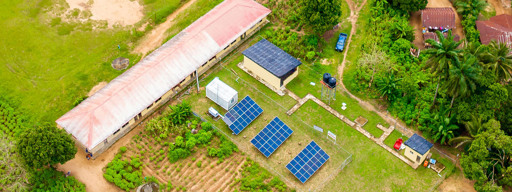I’d heard about this before. I’m reluctant to even call this a climate thing. While its certainly good for the climate if Africa isn’t reliant on fossil fuels, the primary thing here is that its an improvement to people’s lives, not that it reduces emissions.
Amazing work though.
Why can’t it be both? I have solar on my roof. I got it primarily to offset the cost of electricity, but it’s also good for the environment which was another consideration of mine.
Honestly, its probably just a nitpick, but its mostly a framing thing.
The only distinction here is that in Africa, this is mostly about access to energy (which is one of the key factors in standard of living increases), whereas in most of the “Global North” renewables are mostly about reducing energy consumption (via efficiency) and consuming it in ways that don’t impact the environment as much (i.e. replacing the same amount of fossil fuel derived energy).
The primary benefit here is that people who couldn’t access energy before now can. They aren’t really offsetting emissions because there wasn’t a previously established fossil fuel energy generation capacity that was generating nearly as much energy as the new solar capacity is.
Either way, the human livelihood benefits are amazing and it is good that we can get them without expanding fossil fuels. Its good on both sides and entirely a framing nitpick on my part.
All good points you are making here. One thing I would slightly disagree with is the fact that in Africa they are not offsetting emissions. A lot of the small African communities still consume energy. Mostly, it comes from running diesel or gas-powered generators, which are super inefficient and polluting.
Also, these projects can grow much larger and actually create a surplus of energy, which can then be sold to other parts of Africa and beyond, generating economic and environmental benefits.
The issue is that there is no good way of transporting energy out of Africa.
But these mini grids is a good starting off point for the locals for sure
It’s about having an alternative to building new coal fired plants.
Many buildings in Africa have their own fossil fuel electric generators. Reliable electricity removes the need for those, which does reduce emissions immediately.
Furthermore, improving people’s lives empowers them to help reduce emissions (or increase them). Reliable electricity frees up labor for things like washing clothes or cooking, which they can then use to work on, for example, regenerative agriculture like the Great Green Wall, which captures CO2 and further reduces the production of CO2 and chemical pollution from extensive farming practices.
Fantastic!
Reliable power enables so many things. Reducing costs, increasing capacity, and reliability is great.





